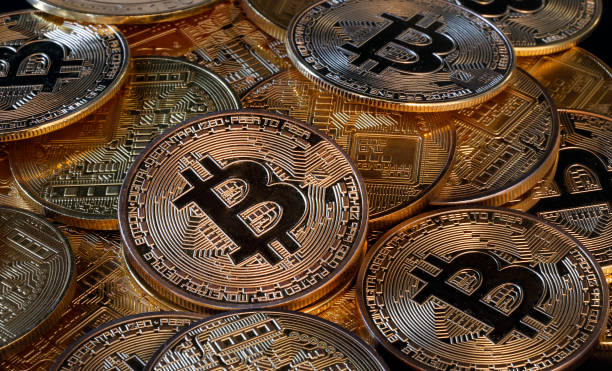In a country where “the money no dey stay one place”, it’s no surprise that many Nigerians are now placing their hopes — and hard-earned cash — in something they can’t see, touch, or even spend at the corner shop: cryptocurrency.
As the naira continues its unpredictable dance — rising today, falling tomorrow — millions of Nigerians, especially young people, are embracing digital currencies like Bitcoin, Ethereum, and USDT, not just as a trendy investment, but as a means of survival.
“If You Hold Naira, You Dey Play With Your Future”
It sounds like something you’d hear at a beer parlour in Lagos, but it’s a sentiment shared by tech-savvy Nigerians from Ikeja to Jos. The value of the naira has plummeted dramatically in recent years, with inflation making basic items like bread and fuel feel like luxury goods. Amid the economic chaos, crypto has become a sort of financial life raft.
“I started with ₦20,000 in Bitcoin in 2021,” says Anita, a 27-year-old freelancer based in Abuja. “It looked risky, but leaving that money in naira was more dangerous. By the end of the year, it had doubled.”
Anita is not alone. Nigeria consistently ranks among the top countries for cryptocurrency usage, according to several global crypto platforms. From traders and freelancers to students and even market women, digital currencies are becoming a parallel economy.
What’s Fueling the Shift?
Three big reasons: instability, inaccessibility, and opportunity.
Instability of the Naira: Inflation in Nigeria hit over 30% in early 2025. Basic costs have doubled or tripled. A bag of rice that cost ₦35,000 last year now costs over ₦70,000. “You save in naira today, tomorrow you can’t even buy pure water with it,” says Kabiru, a student in Kano who now saves in USDT (a cryptocurrency pegged to the dollar).
Inaccessibility of Traditional Banking: With high bank charges, poor internet infrastructure, and often unreliable customer service, many young Nigerians have simply given up on traditional banking. Crypto wallets, in contrast, work 24/7, charge less, and don’t ask for 50 kinds of ID just to open an account.
Global Opportunity: For many, especially freelancers and remote workers, crypto provides a way to earn and get paid from clients abroad — no middlemen, no hidden bank deductions, no CBN exchange rate drama.
The Risks: “E No Be All Shine Wey Be Gold”
But it’s not all rosy. The world of crypto is unregulated, volatile, and, frankly, not for the faint-hearted. Scams are everywhere, and many Nigerians have fallen victim to Ponzi schemes disguised as crypto opportunities.
“I lost ₦500,000 in a so-called investment platform that disappeared overnight,” says Samuel, a digital marketer in Port Harcourt. “They promised 50% returns in two weeks. I should have known it was too good to be true.”
Government regulations are also murky. The Central Bank of Nigeria (CBN) has warned against crypto use and even tried banning it in the past. Though some restrictions have eased, the legal grey area leaves users vulnerable.
So Why Are People Still Doing It?
Because, simply put, many feel they have no choice. With rising poverty, limited job opportunities, and a naira that feels more like tissue paper every day, Nigerians are choosing what they believe gives them control over their finances — even if it comes with risks.
“You have to be smart and stay informed,” says Chisom, a crypto educator on Instagram. “Crypto isn’t a get-rich-quick scheme. It’s a tool. If you learn to use it well, it can help you beat inflation. But if you follow hype, na cry you go cry.”
The Way Forward
As the Nigerian government slowly warms up to the idea of digital finance — introducing the eNaira and talking about regulating crypto exchanges — there’s hope that clearer policies and protections will come into place.
Until then, the hustle continues. Whether it’s Bitcoin, Ethereum, or just saving in dollar-backed coins, more Nigerians are betting on crypto as their best shot at financial stability.
In a country where survival often requires innovation, cryptocurrency is no longer just for tech bros — it’s becoming part of everyday life.
As one Twitter user recently joked, “The naira is unstable, but my crypto wallet gives me small joy every morning. Na this small joy dey keep me going.”
—
Have you traded or saved in crypto lately? Share your experience below. Just don’t drop your wallet address — 419 boys may be watching.




